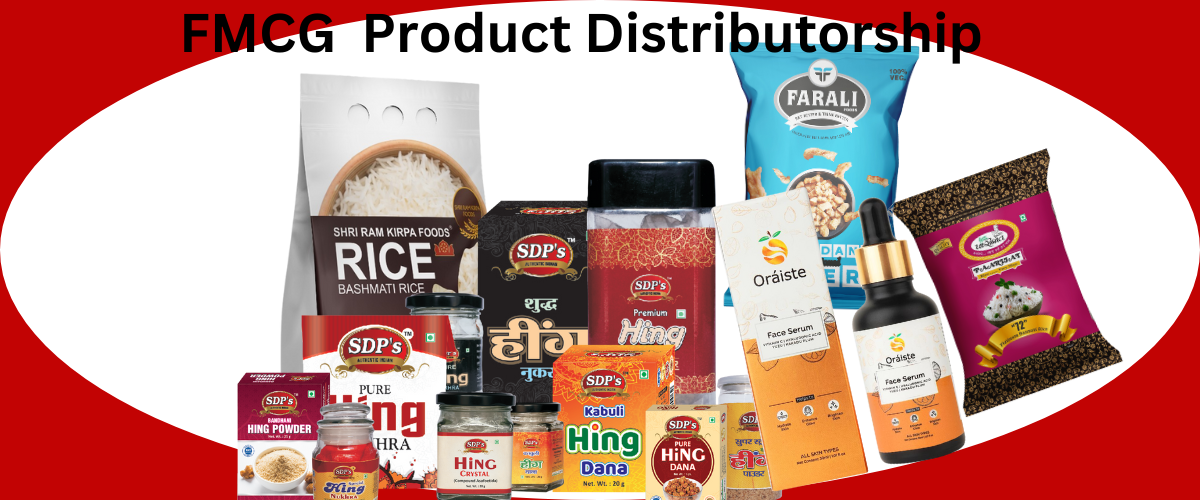Taking on a dealership for FMCG (Fast-Moving Consumer Goods) products can be a lucrative business opportunity. FMCG products are essential items that people use frequently, ensuring a constant demand. If you’re considering stepping into this marketplace, this guide will help you understand the steps and considerations involved in securing an FMCG dealership.
Understanding FMCG and the Marketplace
FMCG refers to products that are sold quickly and at relatively low cost. These include items like packaged foods, beverages, toiletries, and over-the-counter drugs. The FMCG marketplace is vast, competitive, and always in demand, making it a stable choice for a business venture.
Step-by-Step Process to Secure an FMCG Dealership
- Research and Select the Right Products
Before you dive into the distribution business, it’s crucial to research the FMCG products you want to deal with. Consider factors like demand, competition, profit margins, and your interest. Choose products that have a consistent demand in your target market. For instance, daily essentials like groceries, personal care products, and cleaning supplies are always in high demand.
- Understand the Market
Conduct a thorough market analysis to understand the competition and consumer behavior in your area. Identify the top-selling products and the leading brands. This will help you choose the right brand for your dealership and understand the local marketplace dynamics.
- Select a Brand
Once you have a clear understanding of the market, select a reputable FMCG brand. Established brands often provide more support to their dealers, including marketing materials, training, and sometimes financial assistance. Reach out to multiple brands to compare their terms and conditions.
- Contact the Company
After selecting the brand, the next step is to contact the company. Most FMCG companies have a dedicated channel for dealership inquiries. You can usually find contact details on their official website. Prepare a professional proposal highlighting why you are interested in their dealership and what you bring to the table.
- Meet the Requirements
Each company will have specific requirements for their dealers. These may include financial stability, a minimum order quantity, warehouse space, and a solid distribution network. Ensure you meet these requirements to increase your chances of securing the dealership.
- Legal Formalities
Completing the legal formalities is a critical step. This includes signing the dealership agreement, understanding the terms and conditions, and ensuring compliance with all local laws and regulations. It’s advisable to consult a legal expert to help you navigate this process.
- Set Up Your Distribution Network
Once the legalities are sorted, focus on setting up your distribution network. This involves securing a warehouse, setting up logistics for transportation, and establishing relationships with retailers. Efficient logistics and a reliable supply chain are essential for the smooth functioning of your dealership.
- Marketing and Promotion
To succeed in the FMCG distribution business, you need to market your products effectively. Utilize various marketing channels such as social media, local advertisements, and in-store promotions. Offering discounts and deals can attract retailers to choose your distribution services over competitors.
Key Considerations for a Successful FMCG Dealership
- Financial Planning
Adequate financial planning is crucial. Ensure you have enough capital to cover initial investments, including inventory, warehouse rent, transportation, and employee salaries. It’s also wise to have a contingency fund for unforeseen expenses.
- Building Relationships
Strong relationships with retailers and suppliers are the backbone of a successful FMCG dealership. Building trust and providing excellent service can help you retain customers and expand your network.
- Inventory Management
Efficient inventory management ensures you never run out of stock and can meet the demands of your retailers promptly. Invest in good inventory management software to keep track of stock levels, orders, and deliveries.
- Customer Service
Providing excellent customer service can set you apart from your competitors. Address any issues promptly, ensure timely deliveries, and maintain open communication channels with your clients.
- Stay Updated
The FMCG market is dynamic, with new products and trends emerging regularly. Stay updated with the latest market trends, consumer preferences, and new product launches. This will help you keep your product range relevant and in demand.
Challenges in the FMCG Dealership Business
- High Competition
The FMCG sector is highly competitive. To stay ahead, you need to offer superior service, competitive pricing, and a wide range of products.
- Supply Chain Issues
Managing the supply chain efficiently can be challenging. Delays in delivery, stockouts, and logistical issues can affect your business. Having a robust supply chain management system in place is essential.
- Changing Consumer Preferences
Consumer preferences can change rapidly. Staying attuned to these changes and adapting your product range accordingly is crucial for sustained success.
Benefits of an FMCG Dealership
- Constant Demand
FMCG products are essential items with constant demand, ensuring a steady stream of revenue.
- Brand Support
Established FMCG brands provide extensive support to their dealers, including marketing assistance, training, and sometimes financial incentives.
- Growth Opportunities
The FMCG sector offers significant growth opportunities. With a well-established distribution network, you can expand your business to new areas and increase your product range.
Conclusion
Taking an FMCG products dealership is a promising business opportunity. With careful planning, thorough research, and efficient execution, you can build a successful dealership that meets the constant demand for everyday consumer goods. Remember to stay updated with market trends, manage your supply chain effectively, and build strong relationships with your clients for sustained success in this competitive marketplace.







